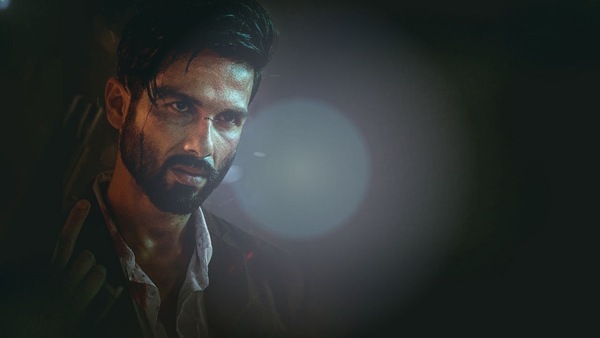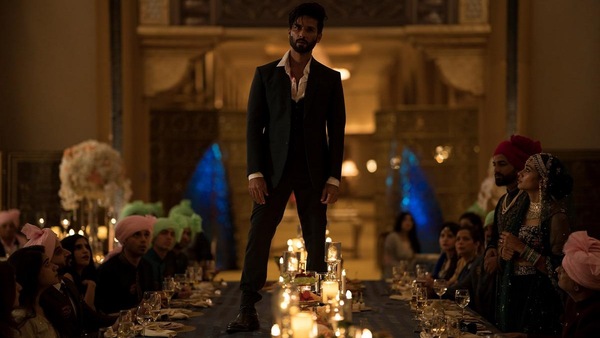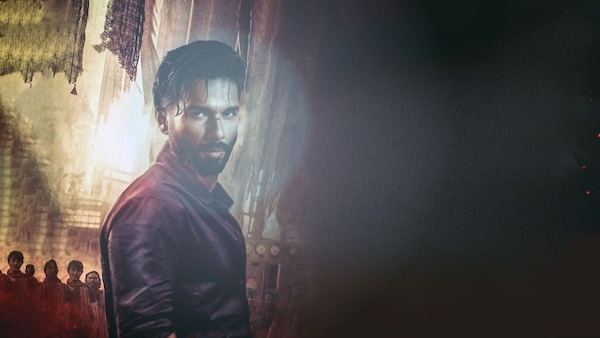Bloody Daddy: Shahid Kapoor-Starrer Is Bloody Good Fun — Until It's Not
This is #CriticalMargin, where Ishita Sengupta gets contemplative over new Hindi films and shows. Today: Bloody Daddy.

Last Updated: 12.49 PM, Jun 09, 2023
AMONG the current crop of filmmakers in Hindi cinema, few can milk commercial tropes as effectively as Ali Abbas Zafar. Across his little-over-a-decade spanning career, Zafar has straddled stereotypes and sentimentality with such commitment that it is difficult to remain unmoved by it. For instance in Bharat (2019), a sprawling drama set against Partition which not just glossed over historical details but had a 44-year-old actress essay the role of a mother to a 53-year-old male superstar, the lingering pathos of sibling separation is so brazenly depicted that it affects you despite the actor on screen being Salman Khan. This is not meant as a jibe as much as admiration for Zafar’s chops as a storyteller. His recent outing then, whose central narrative is as overwrought as how far a father will go to protect his son, is only uplifted with his presence.
Bloody Daddy is an adaptation of the 2011 French film Sleepless Night. The universality of the premise has ensured other retellings before — Sleepless (2017; starring Jamie Foxx) in English and Thoongaa Vanam (2015; Kamal Haasan) in Tamil. On his part, Zafar takes the source material and renders a stylistic, chaotic and largely hilarious iteration that works well for the most part. And then, just when it is supposed to uncoil, it scatters.
Sumair (a convincing Shahid Kapoor) is an officer with the NCB (Narcotics Control Bureau). He is a divorcee and alcoholic. His ex-wife holds grudges against him for being irresponsible, so does his young son. They consider him to be selfish, too immersed in himself to look out for them. The way the film opens only lends legitimacy to this. The year is 2021, the month is November, and the location is Connaught Place, the upscale neighbourhood in Delhi. A speeding car barges into another and within seconds a shootout takes place on the empty street. Four men are involved. One dies, another flees. The two who are still standing are the ones that started the fight — including Sumair. The reason for the attack is a brown duffel bag filled with drugs. Although it might look like a drug bust, the next scene — which involves more cops coming in, and Sumair and his friend Jaggi (Zeishan Quadri) quickly concealing themselves — dispels these doubts. It was a seizure, and Sumair — on the surface at least — is working against the system and not for it.

There is a familiarity with which the incident unfolds, like they have done this in the past. Except this time, they stand to face repercussions. Within hours, the owner of the bag — a rich Gurgram hotelier named Sikander (a smashing Ronit Roy) — calls Sumair with a proposition: return the drugs and take your son. Simple and concise. The bigger problem arises when Sumair decides to do just that and hides the bag in the toilet of the hotel owned by Sikander, where his son is being held. The bag, as you might guess, is misplaced. And to drive the stakes higher, an honest cop has been trailing Sumair, sensing something is amiss, triggering a circuitous cat and mouse game.
This is as far as a tired setting goes. A troubled man is pushed by circumstances to prove his worth to his son. In a different context even Gowtam Naidu Tinnanuri’s Jersey (2022; also starring Kapoor and a remake of a Telugu film of the same name) rested on a similar idea. But that a drug lord stands as the nemesis lends darker undertones to the film. The transformation of Sumair from a dubious cop to a blood-thirsty killer machine, an almost John Wickian character (he changes into a suit halfway) feels imminent, so does Sikander’s reveal to be a cold-hearted criminal who will stop at nothing to get what he wants.
Bloody Daddy’s immense watchability hinges on the extent to which it eschews the obvious in favour of fun without making light of the problem at hand. The first 10 minutes unravel with textbook conventionality including one exposition dump at the food table. But just when the story hurtles towards the obvious, Zafar’s distinct treatment comes to the fore. He excavates humour from situations with such astuteness that it is reminiscent of Raj & DK’s style. It probably is no coincidence that Ronit Roy’s character Sikander, a gentrified criminal with a near-kind heart, bears striking resemblance to KK’s Mansoor Dalal from the director-duo’s latest work, Farzi (2023).
The balance in tonality is impressive. Take for instance that scene where a junior cop calls a senior, both corrupt and currently in trouble, and the latter dismisses the mandatory “Jai Hind” greeting with “Haan haan, jaldi bol” (“Yeah whatever”). Or, when Sumair’s hyper aware GenZ son, sitting surrounded by men with guns, demands hot chocolate with lactose-free milk when asked what he would like to have. If the laughs come organically, it is because the writers (Zafar, Aditya Basu and Siddharth-Garima are credited) built hilarity in the narrative. Much like the way they culturally situate the original story, using the specificity of time and place in hand, making Bloody Daddy a true adaptation.

In that sense, placing the story in 2021 is not random. The pandemic plays a huge role in lending subtext to the commentary Zafar chooses to make, and provides context to the escalating crisis. Being in the hotel business, Sikander has suffered huge losses during COVID, making him only more desperate to retrieve the cocaine and his client (a terrific Sanjay Kapoor) more manic. Similarly, it is not incidental that most of the action unfolds in a swanky 7-star hotel which hosts a lavish wedding at a time when thousands of people are dying in the same city. The inherent absurdity in this lends itself easily to a White Lotus comparison and the film goes forth and crafts riotous moments like when people in the nightclub sing “Go Corona Go” with the DJ, or when Sumair gate crashes a fancy dinner at the hotel leaving the affluent guests stunned… like they have watched a documentary in place of a Karan Johar film by mistake. Things only get funnier when Sanjay Kapoor’s character is delivered atta (wheat flour) in place of cocaine and on complaining that he is not getting any taste of the drug, is told by his henchman Rafa (a rip-roaring Mukhesh Bhatt) that maybe he has COVID.
For the longest time, Bloody Daddy shines as a riveting example of a director having fun, skillfully aware of the actors he has assembled and what they can bring to the table. In more ways than one, the character Sumair fits Kapoor like a glove precisely for the way it uses the physicality and the cockiness of the actor. His inclusion only helps Zafar’s preoccupation and vision of creating a vibe for the film where even action sequences have more to do with swagger than blood.
The problem starts when this balance of tonality and theme, act and action and wit and wisdom gets disrupted. When the filmmaker starts taking things seriously and seeks to outsmart us — when treating us as smart was paying off well. This rupture in the mood can be identified as a unique Zafareque problem where most of his films lie on the brink of being engaging and entertaining but fall short in the last act. Almost on cue, Bloody Daddy derails towards the end. The treatment gets heavy-handed, a song replaces the addictive BGM and sappiness creeps into the narrative, yanking us to focus on details we had otherwise overlooked for the longest time. This becomes an issue because the plot does not stand up too well to attentive watching. And honestly, I did not mind this till I was forced to mind.
The thing with Zafar is that he is a rare mainstream director whose strength lies in remodelling the archetypes without doing away with them. If his trajectory, comprising eight ostensibly commercial outings, is any proof then he is aware of it. But the problem is his love for tropes often overrides his dedication to transform them, resulting in eventually taking refuge in the obvious after steering clear for the longest time. His latest film suffers from the same syndrome. It wants to be cool again but by then most of its swag is sucked out. Bloody Daddy is bloody fun, right until it’s not.

